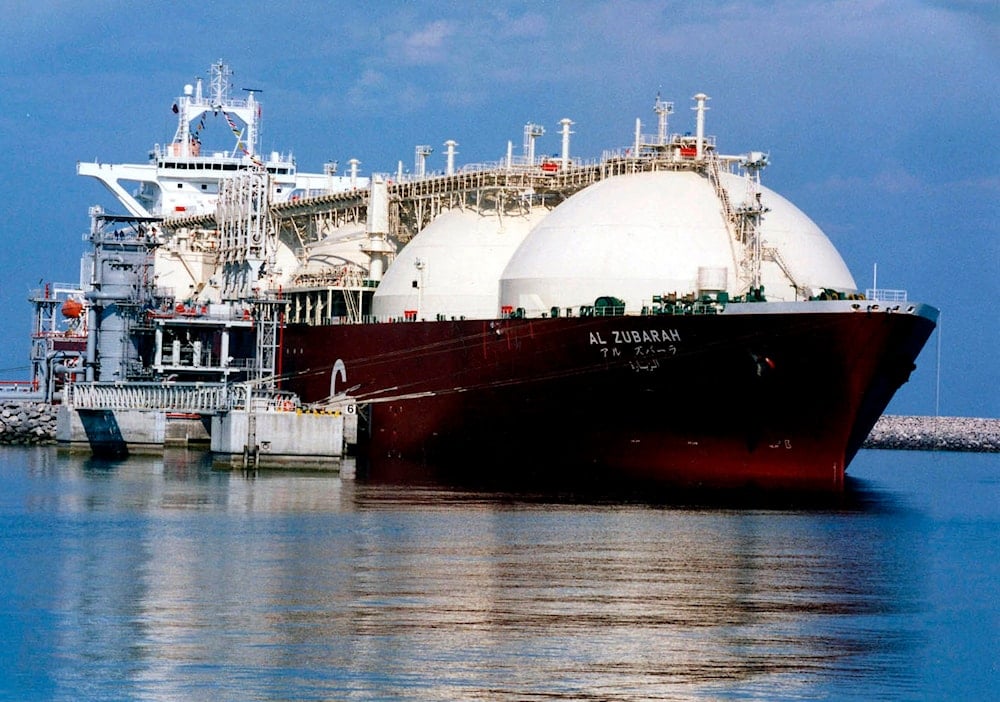Qatar postpones LNG deliveries to Europe as tensions rise in Red Sea
Qatar is postponing gas shipments to Europe due to the blowback of the Yemeni Armed Forces operations against 'Israel' in the Red Sea.
-

This undated photo shows a Qatari liquified natural gas (LNG) tanker ship being loaded up with liquified natural gas at Raslaffans Sea Port, northern Qatar. (AP)
Qatar has notified certain European buyers about shipment delays and revised schedules, traders familiar with the situation told Bloomberg.
To fulfill contractual commitments, Qatar, one of the world's leading gas-producing nations, is reorganizing the global supply chain by diverting deliveries from non-European regions and exchanging them for available cargoes in proximity to Europe, as stated by the traders.
As of January 15, Qatar has rerouted at least six shipments originally bound for Europe via the Cape of Good Hope, which circles Africa, as opposed to the shorter route through the Red Sea, passing through the Suez Canal, as indicated by ship-tracking data gathered by Bloomberg.
These deviations result in delay of shipments, as vessels take far more extended periods of time to reach their destinations than initially intended. This limits the number of ships available for subsequent cargo deliveries.
In one such case, a QatarEnergy LNG shipment destined for the Adriatic terminal of the Italian utility company Edison was initially planned to arrive in early February was delayed. The shipment was postponed to a later date in February, according to individuals familiar with the situation.
In a market notice, Edison acknowledged that a shipment scheduled for January 31 to February 5 would not be delivered on the initially specified date while refusing to comment on the origin of the shipment.
It is worth mentioning that multiple factors including unaffected supplies have off-put any negative effects on LNG prices in Europe. Additionally, the Yemeni Armed Forces have reiterated on multiple occasions that ships not heading to Israeli-occupied Palestinian ports can safely pass through the Red Sea and the Arabian Sea. Moreover, Qatar has not reduced its gas exports since the Israeli war on Gaza commenced on October 7. In fact, the country has increased its supply of gas to the global market by 7% year-on-year, even though those shipments have occasionally taken much longer to reach their destination.
Read next: Biden vows to continue Yemen strikes despite admitting ineffectiveness

 2 Min Read
2 Min Read








